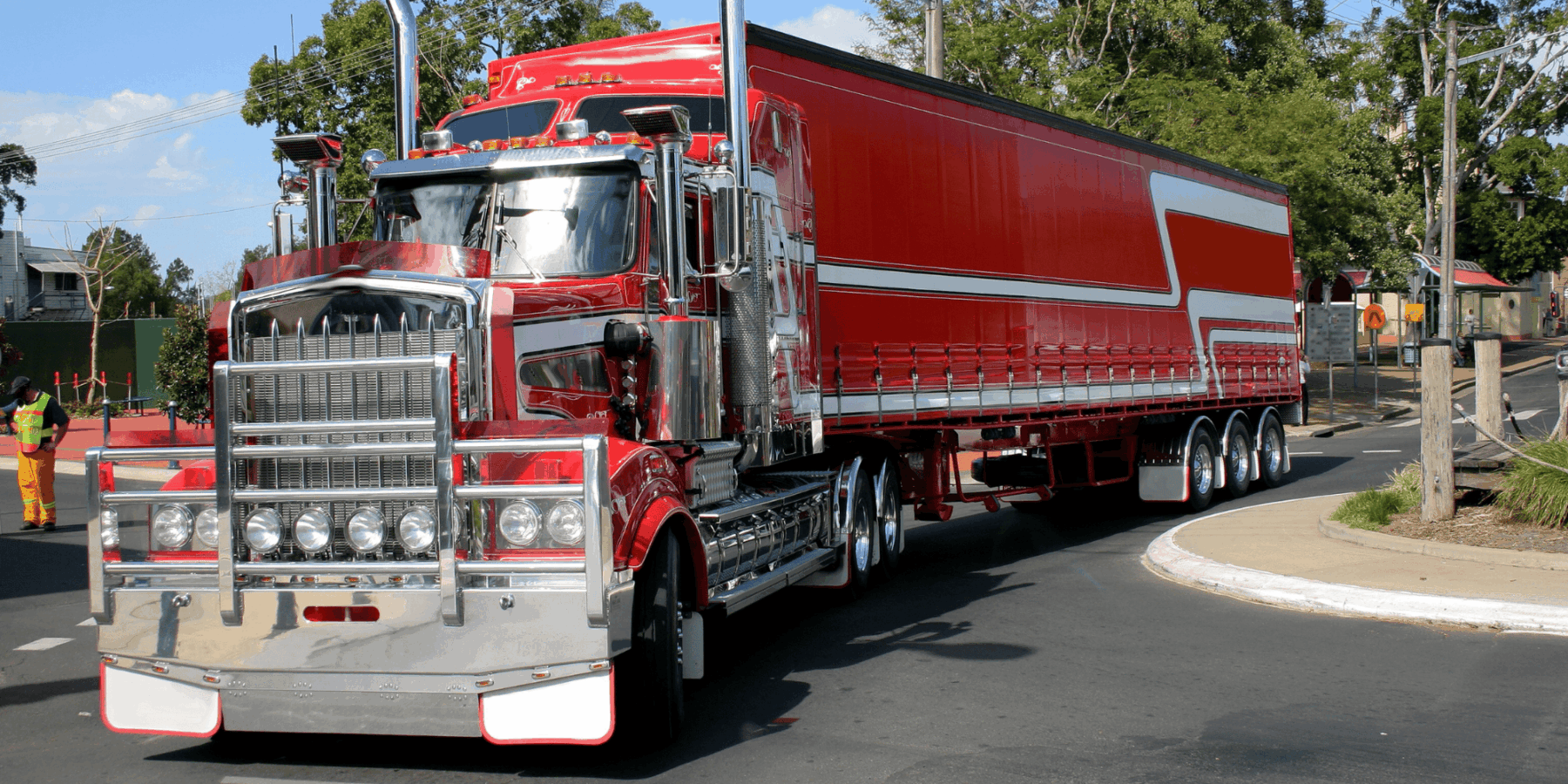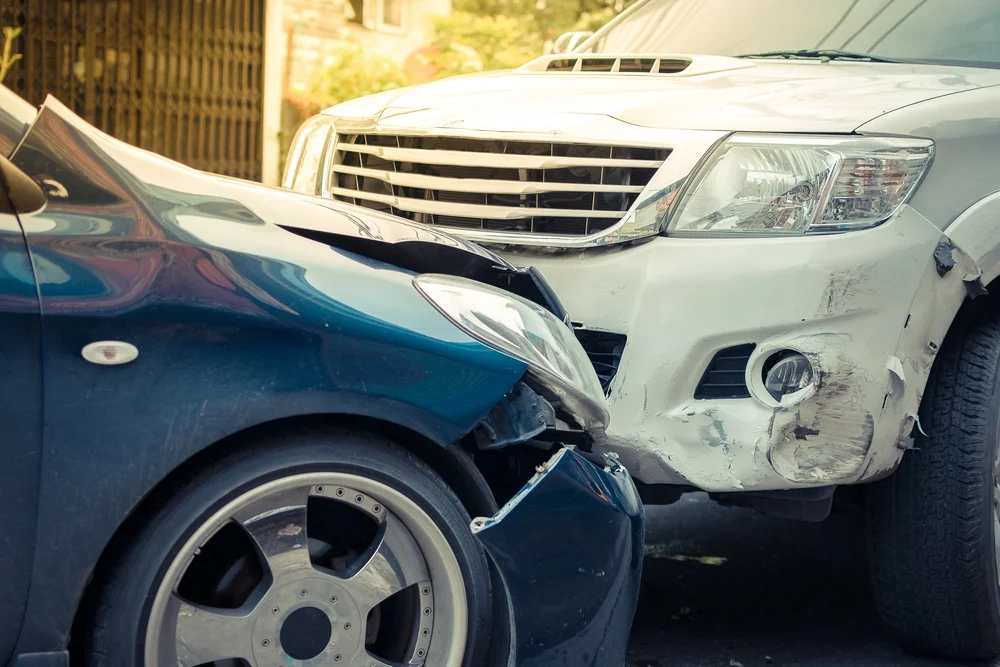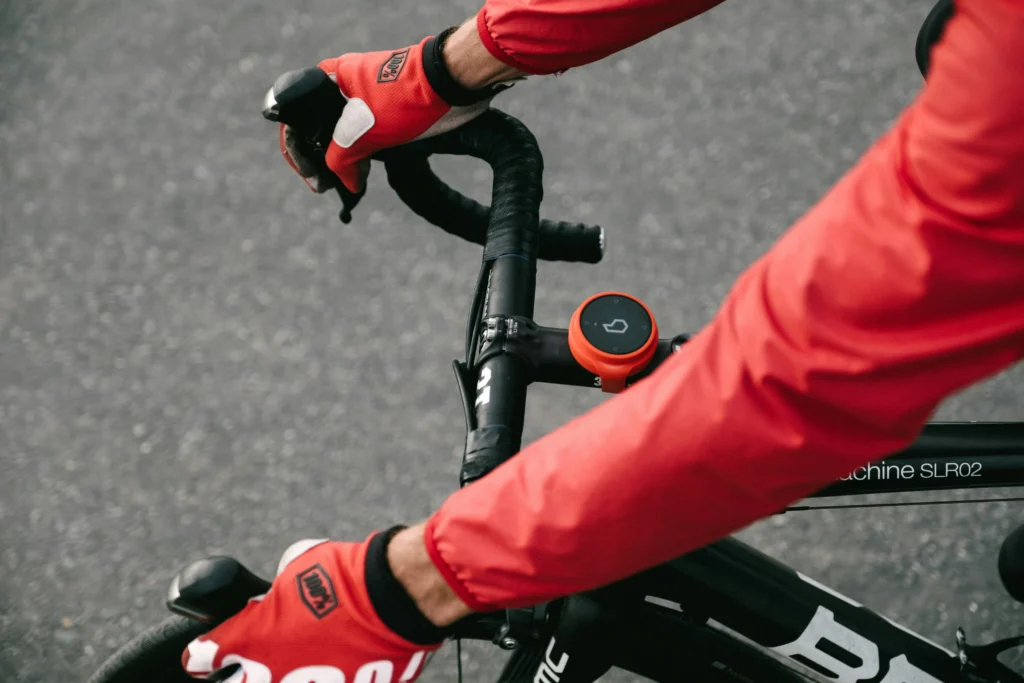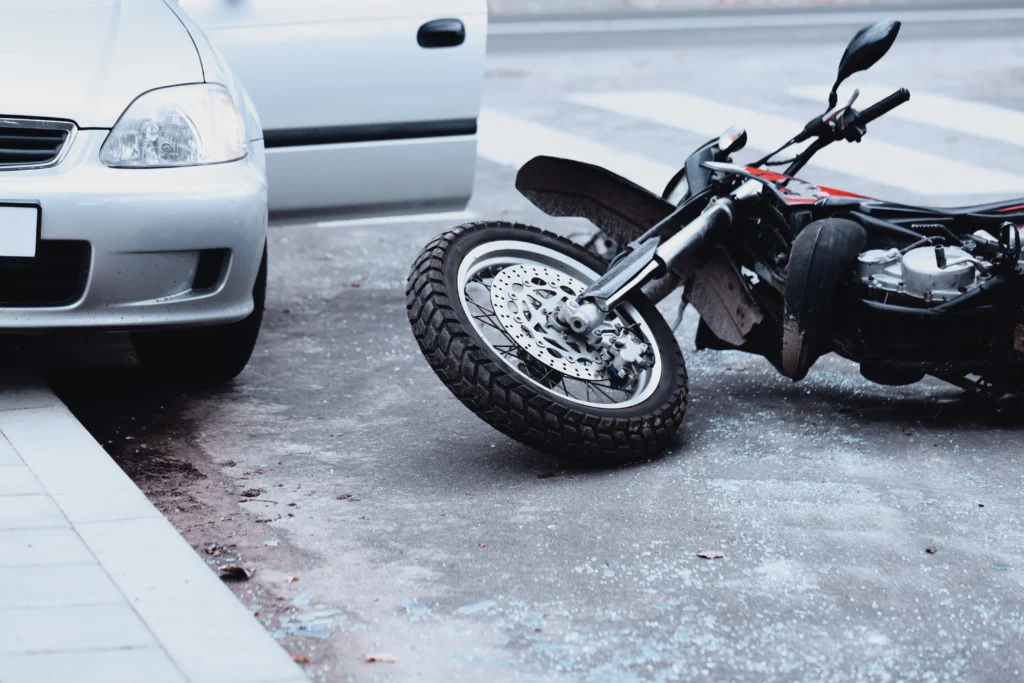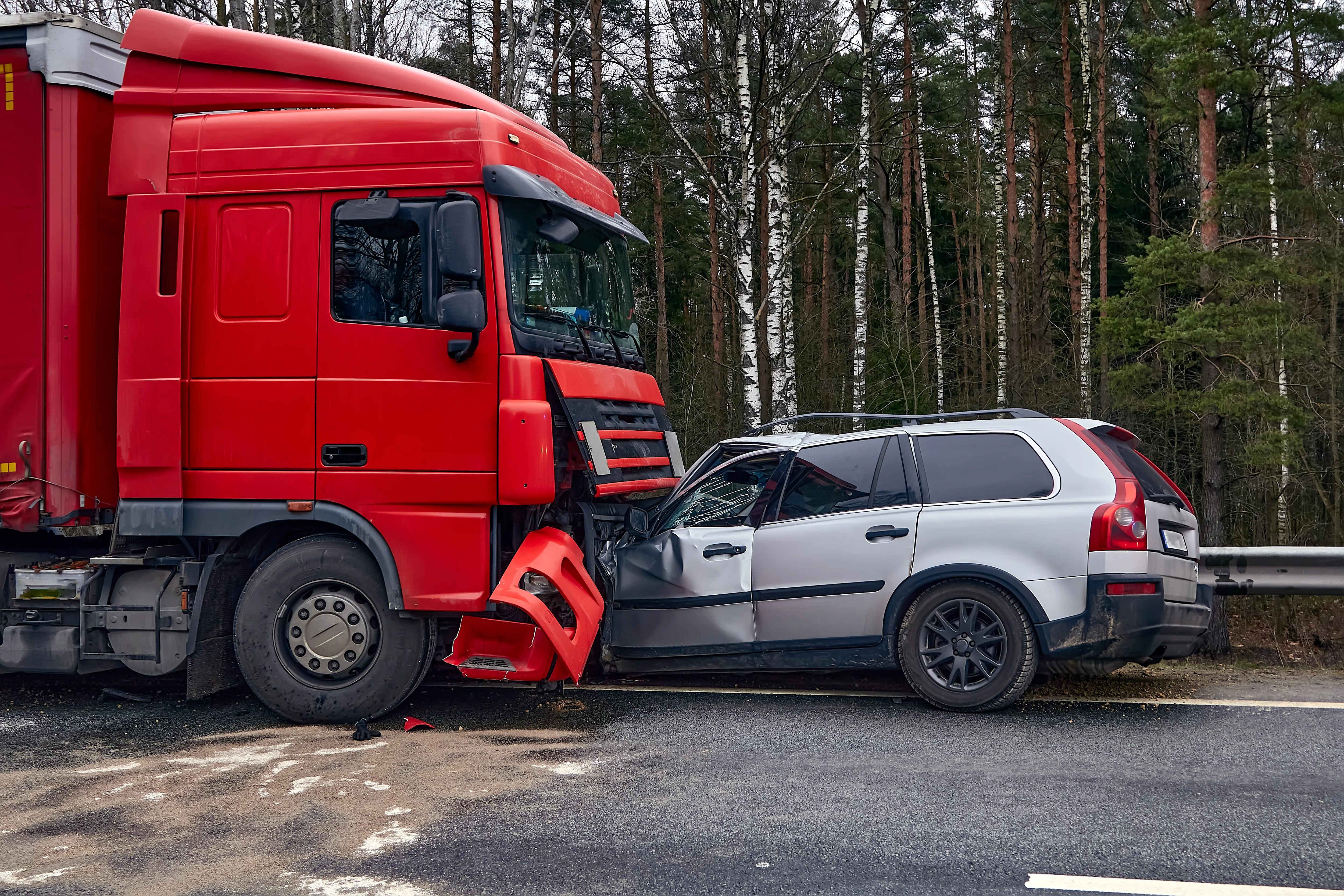Washington Big Rig Accident Lawyer for Victims of Trucking Collisions
An I-5, SR-167, or US-395 commercial truck accident could leave you with medical bills, lost income, and ongoing pain. These are not rear-enders, Washington big rig wrecks often mean catastrophic injury and lifelong harm. Our lawyers at Bernard Law Group act promptly, preserve evidence, and sue all responsible parties, including trucking firms and insurance companies.
Regionwide, traffic by truck is growing. Truck freight shipments in Washington State Department of Transportation’s Freight Report are more than 64%, most crossing highways such as I-90 and I-82 through Spokane, Tacoma, and Yakima. Drivers and families pay the price when corners are cut in safety.
Don’t take the insurance company’s first offer. Our lawyers develop strong legal claims with physical evidence, trucking records, and federal compliance documents. We represent individuals all over the state, Bellingham to Tri-Cities, and do free consultations. If you have been injured in a Washington semi-truck accident, call Bernard Law Group now at (206) 752-2233. We don’t wait. We win.
Where Washington Big Rig Accidents Happen Most Often
Semi-truck crashes in Washington are not random. They cluster around specific highways, freight zones, and industrial access roads. These are areas where truck volume is high and road design does little to protect smaller vehicles. When these wrecks happen, the results are severe. Our legal team investigates the crash zone thoroughly and builds a strong claim using location-specific data, trucking logs, and witness statements.
According to the National Highway Traffic Safety Administration, large truck fatalities have increased in Washington over the past five years, with many crashes tied to poorly designed intersections or dangerous rural grades. If you were injured in one of these high-risk zones, call (206) 752-2233. We take fast legal action while evidence is still fresh.
Freight Routes Through Western Washington That Cause Frequent Crashes
Western Washington highways carry a constant flow of freight. Interstate 5 is the backbone of this system, stretching from the Canadian border to the Oregon line. Between Seattle and Tacoma, trucks move goods from ports to distribution centers 24 hours a day. These rigs often run behind schedule, and that pressure leads to dangerous decisions.
Our firm has investigated truck crashes along stretches of I-5 near Federal Way, Fife, and Tukwila. Drivers frequently cut across lanes without checking blind spots or misjudge braking distance in congested traffic. We use local collision records and FMCSA violations to prove patterns of negligence.
Interstate 5 Through Seattle Metro Is a Known Big Rig Crash Zone
The section of I-5 running through Seattle near the Mercer Street interchange is one of the most crash-prone in the state. Here, freight haulers share lanes with commuters, rideshare vehicles, and buses. Traffic slows and stops suddenly. Big rigs often rear-end smaller vehicles or sideswipe them during lane changes.
By using Washington State Patrol crash reports and city traffic camera footage, our attorneys show exactly how these collisions occur. We also use medical records from Harborview Medical Center and other trauma hospitals to support damage claims.
Highway 167 and Industrial Corridors in Kent and Auburn Are Dangerous for Drivers
Highway 167 runs through South King County and connects to dozens of warehouse access roads. Trucks turning into loading docks from the highway often cause T-bone collisions and sideswipe injuries. These roads lack proper lighting, and intersections are frequently unmarked or confusing.
We build these cases using local infrastructure surveys and collision heatmaps from the Washington State Department of Transportation. If you were hit while merging or crossing near a loading facility, we work to prove liability extends beyond the truck driver.
Rural Truck Routes in Eastern Washington With Higher Fatality Risk
Eastern Washington counties like Grant, Walla Walla, and Yakima see fewer vehicles but far more serious truck crashes per mile. The risk increases on roads like US-97, SR-24, and US-395. These are long, flat stretches with steep drop-offs, narrow shoulders, and poor lighting. When truckers speed or drive drowsy, local drivers suffer the consequences.
The National Center for Biotechnology Information confirms that rural commercial vehicle collisions often result in delayed treatment and higher fatality rates. Our firm handles many of these cases and partners with regional trauma centers to document life-altering injuries.
Semi-Truck Collisions on US-395 and the Approach Into Kennewick Are Deadly
The approach to Kennewick from Spokane on US-395 is a known crash corridor. Trucks descend from high-speed zones into commercial intersections without enough distance to slow down. When cargo shifts or brakes fail, the result is often a multi-vehicle pileup.
Our team retrieves black box data and load manifests to show how driver behavior and company policies caused the wreck. We also investigate whether the trucking company violated rest-hour limits or failed to secure their load properly.
Road Conditions on SR-24 and SR-241 Near Yakima Contribute to Truck Accidents
In Yakima County, trucks carrying produce or chemicals often travel on tight rural highways with minimal enforcement. SR-24 and SR-241 wind through orchard land, with soft shoulders and blind turns. When drivers take curves too fast or drift off the road, nearby vehicles pay the price.
We have successfully pursued claims in these areas by using road condition assessments and vehicle inspection histories. Local crash scene documentation often reveals that the road surface was a contributing factor, which increases the value of the case.
How Washington and Federal Trucking Laws Impact Big Rig Accident Cases
Every Washington big rig accident is governed by a complex network of state traffic regulations and federal safety rules. These laws determine who is liable, what evidence must be preserved, and how compensation is awarded. When a trucking company violates even one regulation, the legal consequences can be severe. At Bernard Law Group, we hold them accountable through direct legal pressure and thorough documentation.
The Federal Motor Carrier Safety Administration outlines strict rules for commercial truck operations across the U.S., including Washington. These rules cover hours of service, load limits, brake inspections, and licensing. When a truck driver breaks these rules and someone gets hurt, the company cannot claim ignorance or avoid responsibility. We use violations as leverage to demand full recovery for our clients.
Hours of Service Violations Are Common in Washington Big Rig Crashes
Commercial truck drivers must follow hours-of-service limits that cap driving time and mandate rest breaks. These federal rules exist to prevent drowsy driving, which remains one of the top causes of truck crashes in Washington. Yet trucking companies often push drivers to meet unrealistic delivery deadlines, especially along I-90, I-5, and SR-18.
Bernard Law Group pulls electronic logbooks, dispatch records, and weigh station timestamps to prove drivers ignored mandatory rest periods. We hold carriers accountable for forcing unsafe schedules. When fatigue causes a crash, we make sure the legal fault includes the employer.
Internal Pressure From Carriers Often Overrides Safety Laws
Many trucking companies operating in Washington prioritize speed over safety. They pressure drivers to skip rest stops or alter logs. We use subpoenaed documents and driver testimony to prove that a company knowingly violated FMCSA standards. These violations strengthen our injury claims and increase the available damages for victims.
Brake Failures and Inspection Violations Often Lead to Truck Collisions
Federal law requires trucking companies to inspect and maintain brakes, lights, tires, and steering components. But in our experience, many firms operating through King, Pierce, and Spokane counties cut corners on maintenance. When a semi-truck crash in Washington involves mechanical failure, we investigate immediately.
Our attorneys request mechanic logs, part orders, and past violations through public FMCSA data and direct legal discovery. According to a study by the Insurance Institute for Highway Safety, poor brake maintenance is a major contributor to truck crashes. If worn-out brakes caused your injury, we will prove the system failed and demand full compensation.
Skipped Maintenance Creates Systemic Risk for Other Drivers
When trucks roll out with worn brakes or tires past legal tread depth, the trucking company is not just careless. It is negligent. These trucks travel over mountain passes and urban streets where failure means disaster. Our team uncovers those violations using DMV records and FMCSA audits.
Weight Limits and Overloaded Cargo Increase Injury Severity
Washington state enforces maximum weight limits on all commercial trucks. When a vehicle exceeds legal limits, it takes longer to brake, is more likely to jackknife, and can cause devastating impact damage. The risk is higher on steep highways like SR-14, Snoqualmie Pass, and US-12.
The Washington State Patrol Commercial Vehicle Division conducts roadside weight checks and safety inspections. We use their findings along with shipper documents and bill-of-lading records to show a truck exceeded its safe load. If cargo violations made your crash worse, we include that in our demand package.
Improper Loading Can Also Shift Cargo During Transit
Even when a load is legal in weight, poor distribution or unsecured freight can lead to cargo shifts. These shifts make a trailer unstable, especially on curved exits or during sudden stops. We often work with accident reconstruction professionals to confirm the load shifted and led directly to the crash.
Why Big Rig Claims Require Aggressive Legal Tactics in Washington
Truck crashes in Washington leave behind more than wreckage. They trigger medical emergencies, lost income, and long-term trauma for everyday people. When an 80,000-pound rig hits a passenger car, the victims rarely walk away without harm. Trucking companies know this. Their insurers prepare immediately, building legal walls before victims can even leave the hospital. That is why every Washington big rig claim needs aggressive legal action from day one.
According to the U.S. Department of Transportation’s Truck Crash Causation Study, commercial trucking accidents often involve multiple breakdowns in safety and procedure. These are not simple fender-benders. They require immediate documentation, legal intervention, and pressure that forces corporate carriers to respond. At Bernard Law Group, we approach every truck case as if it is heading to trial. That urgency gives our clients leverage from the start.
Insurance Carriers Protect Their Bottom Line After a Washington Semi-Truck Crash
When a commercial truck causes injury in Seattle, Spokane, or anywhere in between, the carrier’s legal team gets involved almost immediately. Their investigators gather evidence, interview their driver, and sometimes even reach out to the injured party. Their goal is simple. Minimize the payout and limit fault.
Our firm intervenes early and takes over all communication. We prevent clients from falling into common traps like recorded statements or early settlements. Every move we make is designed to document negligence and protect long-term recovery.
Delayed Claims Give the Trucking Company an Advantage
If weeks pass after a Washington big rig accident, critical evidence can disappear. Dash cam footage, electronic logs, and vehicle maintenance records are often deleted or overwritten. We issue legal preservation letters immediately. We also file motions in court to secure physical and digital proof before it vanishes.
Fast Action Builds a Stronger Claim From the Start
At Bernard Law Group, we send investigators to crash scenes within days, sometimes within hours. We collect debris data, examine tire marks, and capture vehicle positioning. In several past cases, this early effort helped us prove fault when police reports were incomplete or incorrect.
Our attorneys also coordinate with trauma teams and specialists throughout Washington to document the full scope of injuries. From spine damage to post-concussive symptoms, we ensure every harm is properly linked to the crash in your legal claim.
Crash Reconstruction Tells the Story When the Truck Driver Denies Fault
Truck drivers often claim they never saw the other vehicle or could not avoid the crash. We counter that with high-quality crash reconstruction. We use local traffic data, commercial GPS routes, and witness statements to recreate what happened and why it could have been prevented.
Washington Trucking Companies Try to Avoid Public Accountability
Big rig carriers operate across state lines and rely on contracts with national brands. They do not want headlines. They avoid courtrooms. When faced with a prepared legal team that refuses lowball offers, they often settle on the eve of trial. We have secured high-value settlements by refusing to back down.
The American Association for Justice reports that trucking companies often prioritize profits over public safety, leading to avoidable crashes. We use that history to build claims that force accountability for every rule broken and every life disrupted.
Trial Preparation Shifts the Balance in High-Value Claims
We do not rely on negotiations alone. Every file is built with courtroom presentation in mind. That includes medical visuals, expert statements, and documented federal violations. By preparing for trial from the beginning, we give our clients more power in every step of the legal process.
Delivery Trucks and Local Commercial Vehicles Cause Damage Too in Washington
Not every truck collision in Washington involves a long-haul semi on the interstate. Many serious injuries result from delivery vans, box trucks, and smaller commercial vehicles operating in residential zones, parking lots, and city streets. These wrecks happen during everyday errands and work commutes, often at lower speeds but with just as much force. When a driver is careless, the injuries still last a lifetime. We build cases that treat local truck crashes with the seriousness they deserve.
Across Washington, services like Amazon, UPS, FedEx, and regional contractors deliver thousands of packages each day. Drivers operate under tight deadlines and company pressure. This creates constant risk for pedestrians, cyclists, and local drivers. A Harvard School of Public Health study confirms that these vehicles increase the danger in densely populated areas, particularly where traffic and infrastructure already strain daily safety.
Commercial Vehicle Collisions Are Common in City and Suburban Neighborhoods
Drivers navigating narrow streets in Tacoma, Bellingham, or Renton often park illegally, block visibility, or reverse without checking blind spots. Local children, cyclists, and vehicles passing nearby are at risk. In many cases, victims are hit while walking on sidewalks, backing out of driveways, or sitting at stop signs.
Our firm investigates these crashes with urgency. We retrieve driver schedules, dispatch instructions, and dash cam footage to determine if corporate pressure played a role. These cases often reveal that drivers skipped safety steps to meet quota. We hold the company accountable for every shortcut.
Amazon and Third-Party Fleets Contribute to Growing Truck Accident Numbers
Amazon contracts many deliveries to subcontractors who wear no uniform and drive unmarked vehicles. These independent contractors often receive minimal training and limited oversight. That lack of structure leads to serious errors in judgment and poor vehicle handling. We have built successful claims by uncovering who hired the driver and which insurance policy applies.
In some claims, Amazon attempts to distance itself from liability by pointing to subcontractor agreements. We respond with business records and delivery tracking data to prove control and responsibility. Our rideshare accident litigation team uses similar tactics to overcome corporate denials in delivery vehicle claims.
Delivery Truck Wrecks in Parking Lots and Business Access Roads
Parking lots around grocery stores, office parks, and shopping centers are active delivery zones. Drivers often reverse quickly, cut across lanes, or park outside loading zones. These habits turn low-speed areas into hotspots for injuries, especially for elderly pedestrians and parents with children.
Our firm builds these cases using surveillance footage, store camera data, and truck GPS logs. We prove the driver ignored traffic flow, signage, or safety policy. We also review incident history to determine whether the business had prior delivery safety complaints.
Commercial Trucks Must Follow the Same Laws as Long-Haul Semis
Just because a delivery truck is under 10,000 pounds does not mean it escapes trucking laws. These vehicles still owe a duty of care and must carry insurance to cover damages. When injuries happen, we pursue the full value of the claim through corporate liability channels.
Victims of Local Truck Accidents Often Do Not Know Where to Start
Many people injured by local fleet vehicles are unsure whether the company or the driver is responsible. They may be offered small settlements before they even understand their rights. Our team steps in immediately, identifies all coverage options, and files direct claims that reflect the true scope of your losses.
The National Institute for Occupational Safety and Health has found that pressure to deliver on time leads to cutting corners. We use studies like this to support our arguments in court and in negotiations. If a commercial vehicle caused your injury, we will identify every liable party and push for results.
Speak With a Washington Big Rig Accident Lawyer Today
If you were injured in a Washington big rig crash, now is the time to act. Trucking companies already have their legal teams working. Their goal is to protect profits, not people. That is why you need an attorney who moves quickly, builds pressure, and demands results. At Bernard Law Group, we take on commercial carriers, delivery fleets, and national insurers with no hesitation.
Every day you wait puts evidence at risk. Surveillance footage gets erased, black box data disappears, and trucking companies revise internal records. We preserve that evidence, document your injuries, and prove liability with detail. Whether your crash happened on I-5 near Seattle or on a rural grade outside Yakima, we will treat your case like it matters.
Our team handles:
- Trucking crashes involving long-haul or local freight
- Delivery vehicle injuries in neighborhoods or parking lots
- Catastrophic injuries including brain damage and paralysis
- Wrongful death claims after fatal big rig collisions
We also handle traumatic brain injury cases and wrongful death claims across Washington, offering full legal representation to families affected by severe trucking negligence.
Our firm works on a contingency fee basis. That means no upfront cost and no legal fees unless we recover compensation for you. The call is free. The case review is confidential. The results are real.
Call Bernard Law Group at (206) 752-2233 now or schedule a free consultation online.
We serve clients statewide and respond quickly to crashes in Seattle, Tacoma, Spokane, Vancouver, and every Washington county in between.
Let us take on the trucking company while you focus on recovery.
Practice Areas
Trust Us With Your Personal Injury Claim
If you or a loved one have been injured, Bernard Law Group will fight for you every step of the way. We will give our all to secure the compensation you rightfully deserve.
Contact usfor a free consultation.
Phone: (206) 312-3908
